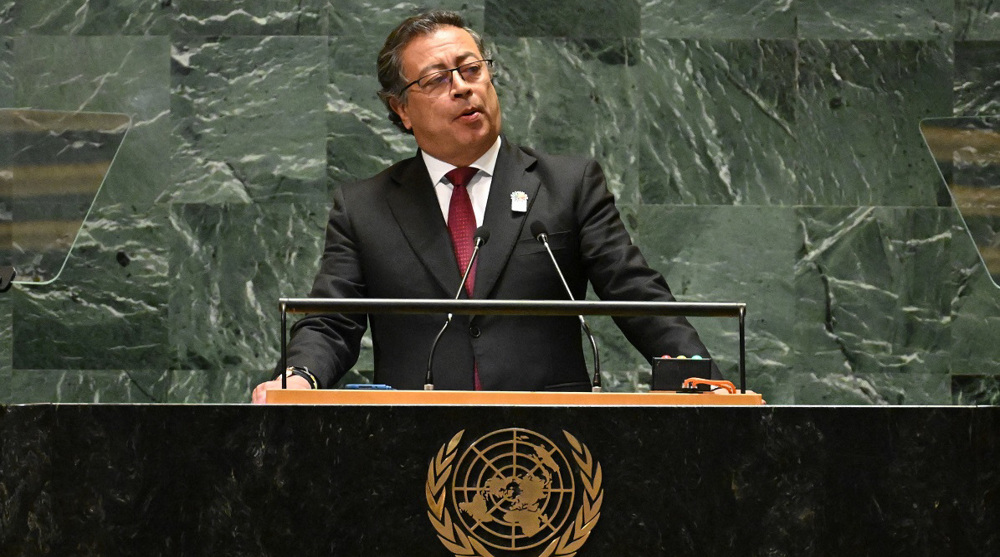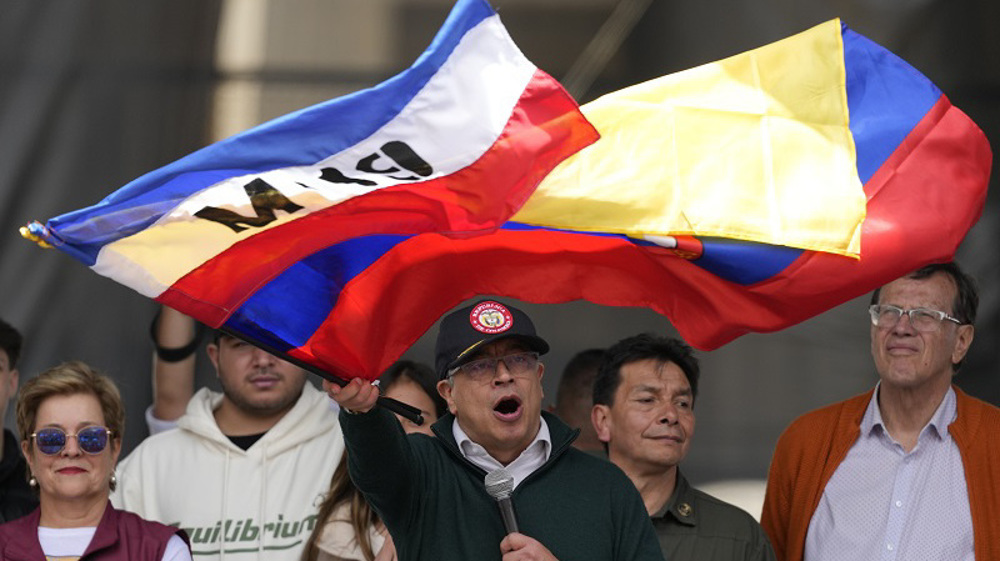UN, EU slam 'excessive use of force' against protesters in Colombia
The United Nations (UN) and the European Union (EU) have condemned the "excessive use of force" during anti-government protests in Colombia, which has led to scores of deaths and injuries.
The protests came after a now-canceled tax reform proposal by the government of Colombian President Ivan Duque drew widespread anger and triggered violent rallies across the South American country.
Latest official figures showed that at least 19 protesters were killed and more than 800 others sustained injuries in fierce clashes with security forces during five days of anti-government demonstrations.
"What we can say clearly is that we have received reports, and we have witnesses, of excessive use of force by security officers, shooting, live ammunition being used, beatings of demonstrators and as well detentions," Marta Hurtado, spokeswoman for the Office of the UN High Commissioner for Human Rights, said on Tuesday.
Hurtado also voiced "profound shock" at an incident overnight in the city of Cali, southwest of the capital, Bogota, where police opened fire on people protesting against the proposed tax reform.
The UN human rights spokeswoman called for calm in Colombia and said, "We remind the state authorities of their responsibility to protect human rights, including the right to life and security of person, and to facilitate the exercise of the right to freedom of peaceful assembly."
Also on Tuesday, the EU called for an end to the escalating violence while urging Colombian security forces to avoid a heavy-handed response to the protests.
"We condemn the deaths of all the people who have been killed during those protests, the reports are saying at least 19 victims and also one police officer," an EU spokesman told a regular briefing.
"It is really a priority to stop the escalation of this violence and to avoid any disproportionate use of force by security forces," he added.
Duque's government introduced the tax reform bill on April 15 with the aim of generating $6.3 billion between 2022 and 2031 to reignite the fourth largest economy in Latin America.
The proposed reform was seen by protesters as a means of increasing taxes on individuals and businesses and eliminating many exemptions.
Faced with the unrest, the Colombian government ordered that the proposal be withdrawn from Congress on Sunday and said it would draw up another reform proposal after consultations with lawmakers, the civil society, and businesses.
People have, however, defied calls for halting the anti-government demonstrations and continued protests in Bogota and other Colombian cities by blocking roads and junctions.
Colombia's economy shrank by 6.8 percent in 2020 — its worst performance in half a century — due to coronavirus restrictions, with unemployment reaching 16.8 percent in March and 42.5 percent of the population living in poverty.
Iranian satellites launched into space as private sector debuts in space industry
VIDEO | Iran, Azerbaijan conduct joint maritime rescue operations
VIDEO | Yemen’s Red Sea divide: Naval forces block Israeli-linked ships in strategic ‘parting of the water’
VIDEO | Southern Gaza: Israel’s facade for famine and suffering
VIDEO | IOF hampering humanitarian aid
VIDEO | Sharmahd: Justice Done
Iran repeatedly warned Israel not to test its will: FM
Israeli reservist ends own life after being called up for active duty: Broadcaster












 This makes it easy to access the Press TV website
This makes it easy to access the Press TV website